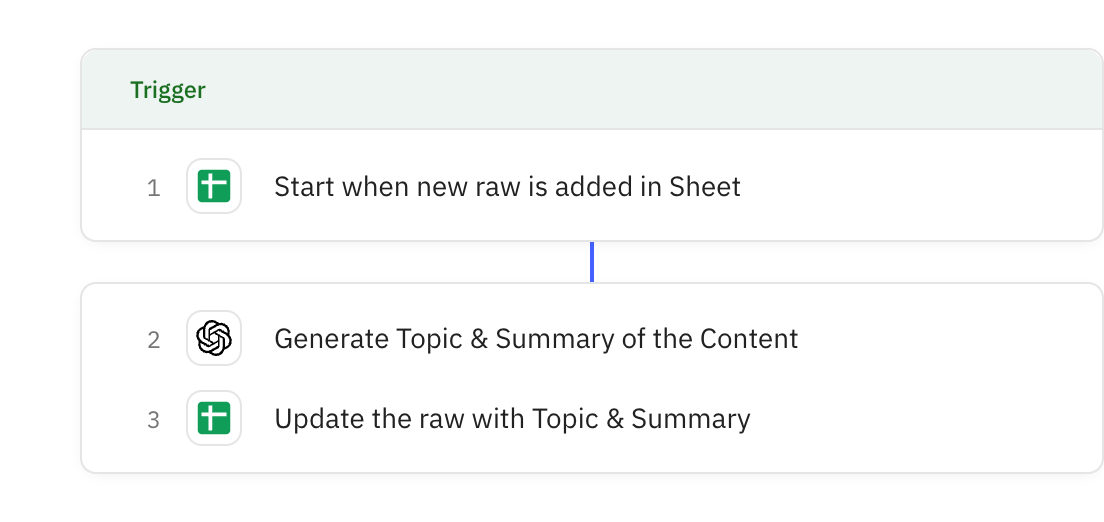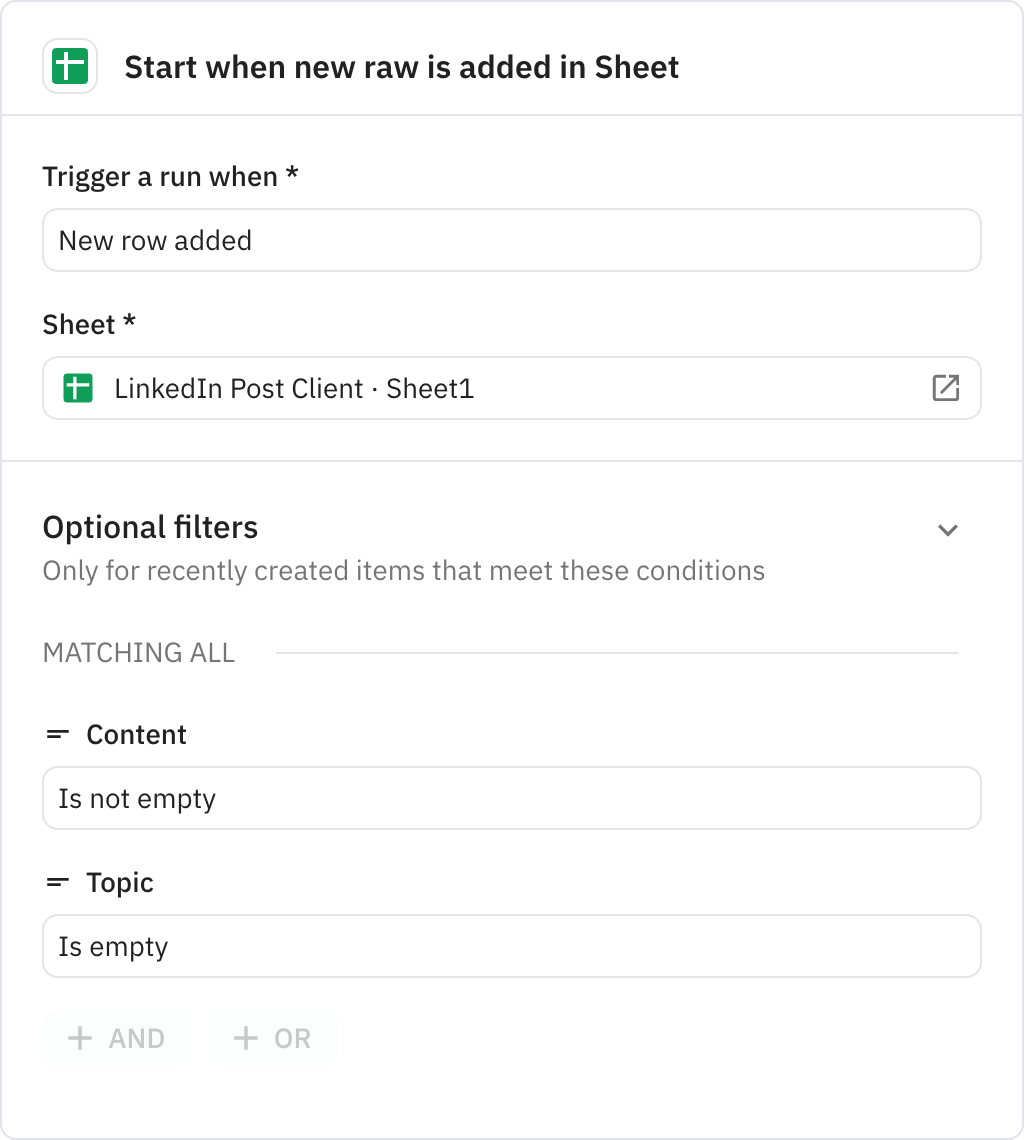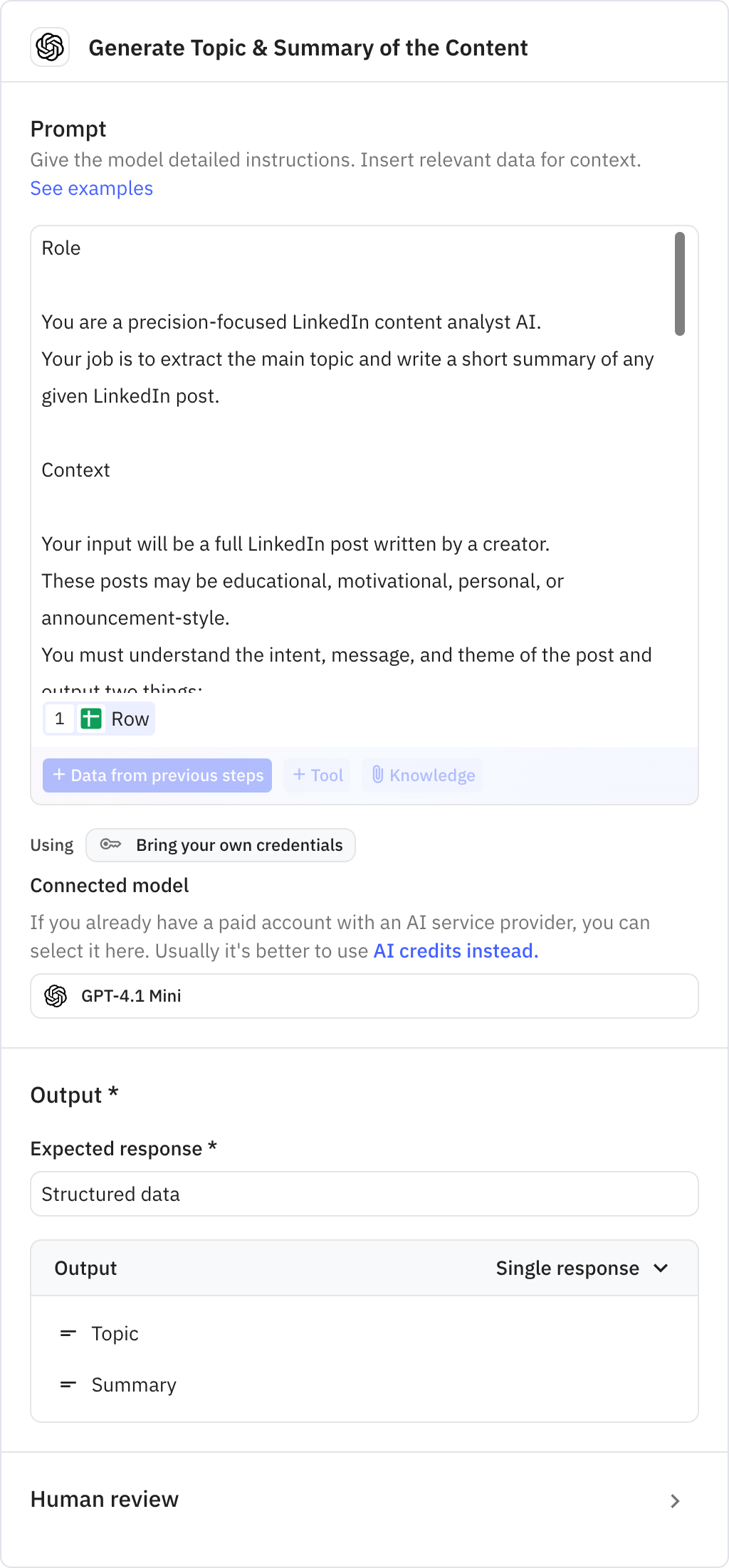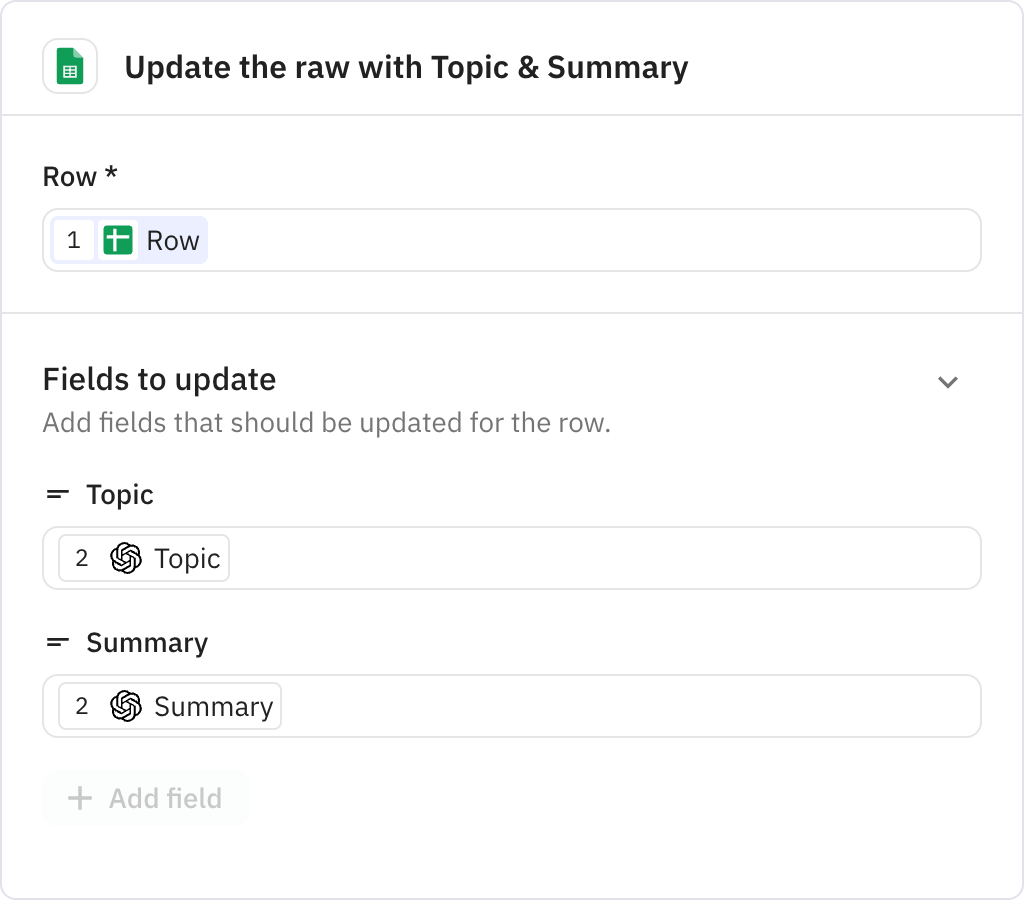So, I have this habit of daily analyzing the most successful creator post on LinkedIn to learn, how they write those post and what we can learn from there post.
And that is how I grow better in my LinkedIn journey.
But while doing this, I often write a lot of things in the notebook, and often those things get forget or may be remove.
So, I am consistently searching for the way to store those ideas and learning.
That's when, I created this simple automation, which summarized and generate the post Topic for me.
So that when I look on it after some time to review it quickly it's become very easy to do so.
And remember this is just a simple framework you can do wonders by changing or modifying it.
As that thing depends on you.
Keep going.
So, I have this habit of daily analyzing the most successful creator post on LinkedIn to learn, how they write those post and what we can learn from there post.





